Leadership Behavioural Theory and its application on Korean Company
VerifiedAdded on 2024/06/04
|12
|709
|419
Case Study
AI Summary
This case study explores the application of behavioural leadership theory to address management issues within a Korean company, particularly focusing on staff dissatisfaction following the introduction of automation. The analysis highlights how behavioural theory, with its emphasis on understanding and adapting to changes in employee behaviour, can be used to improve organizational performance. The case study suggests the use of role theory and managerial grid concepts to address the staff's concerns, boost morale, and increase productivity. By implementing strategies that consider both employee well-being and production efficiency, the Korean company can effectively navigate the challenges posed by automation and foster a more engaged and motivated workforce. The document concludes that understanding and applying behavioural theory can provide valuable solutions for organizations facing similar challenges.
1 out of 12
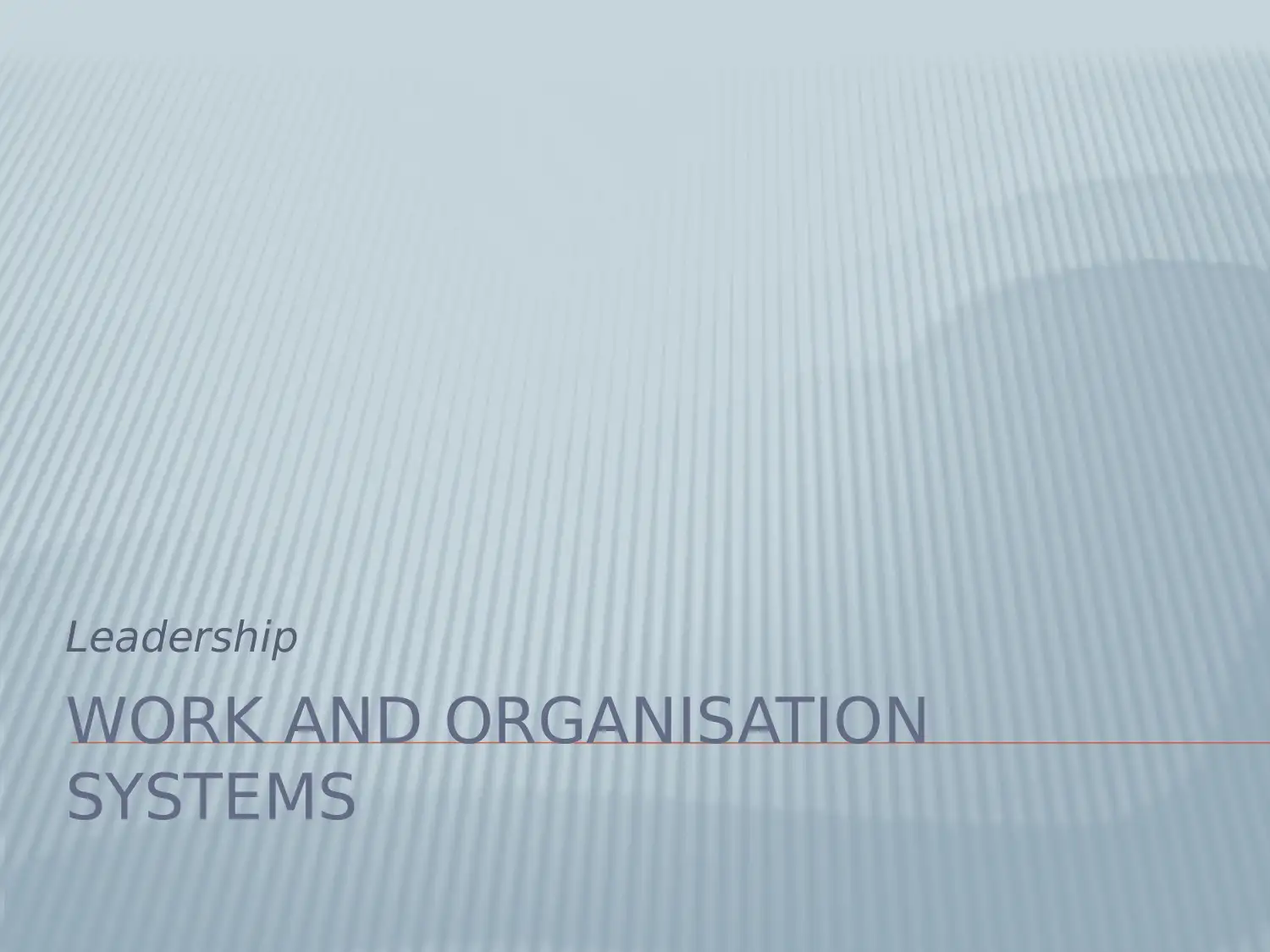

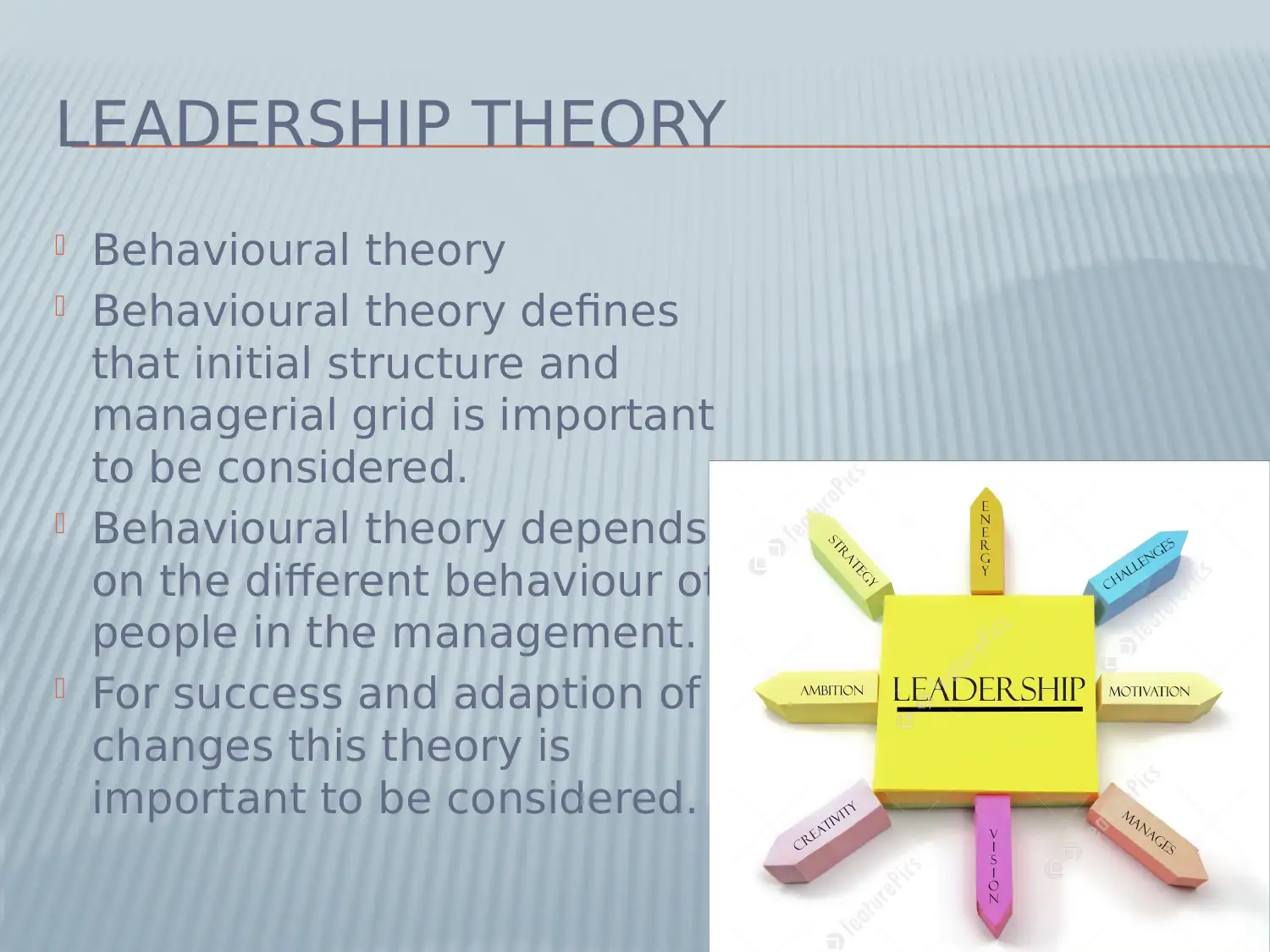

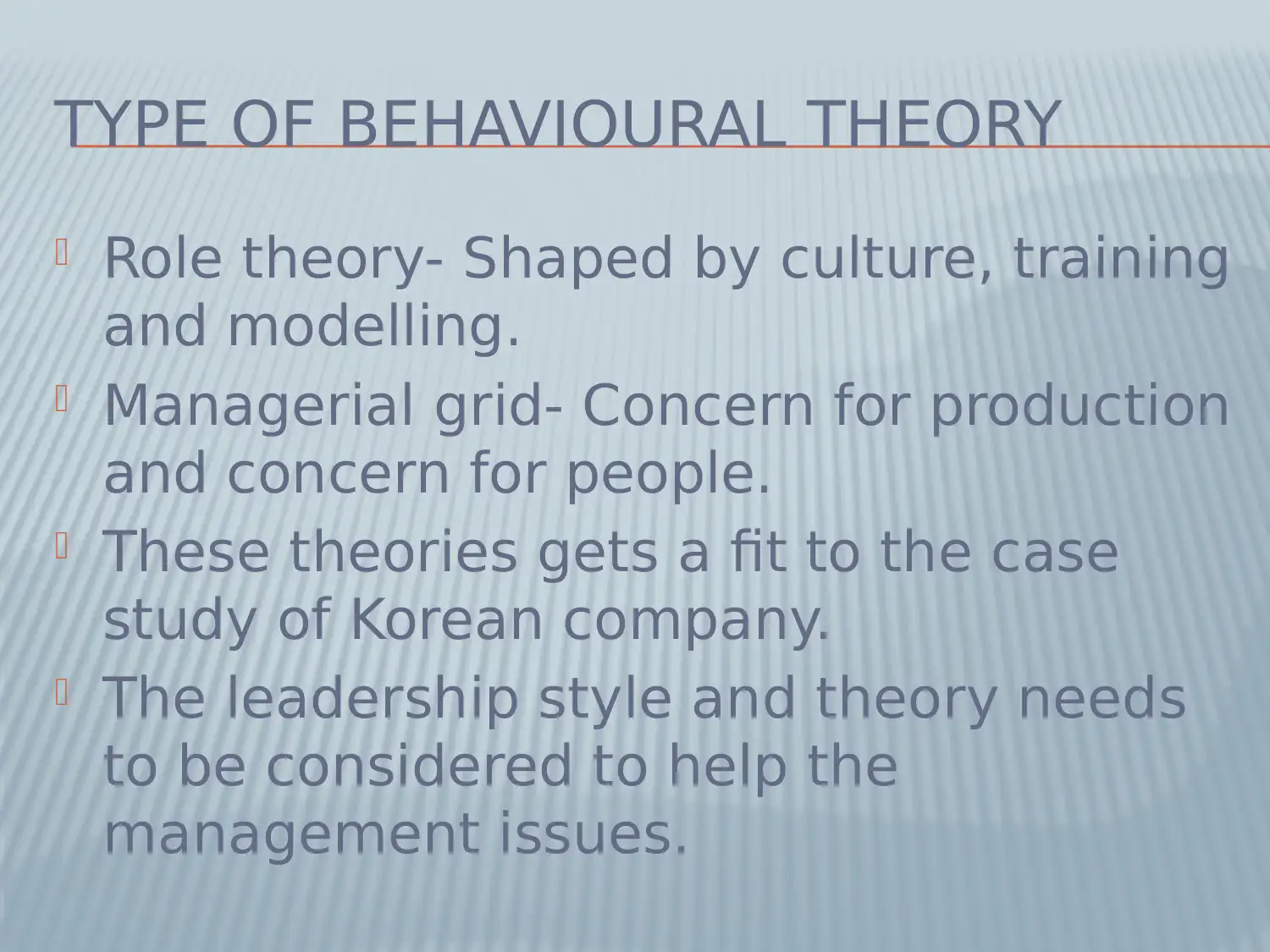
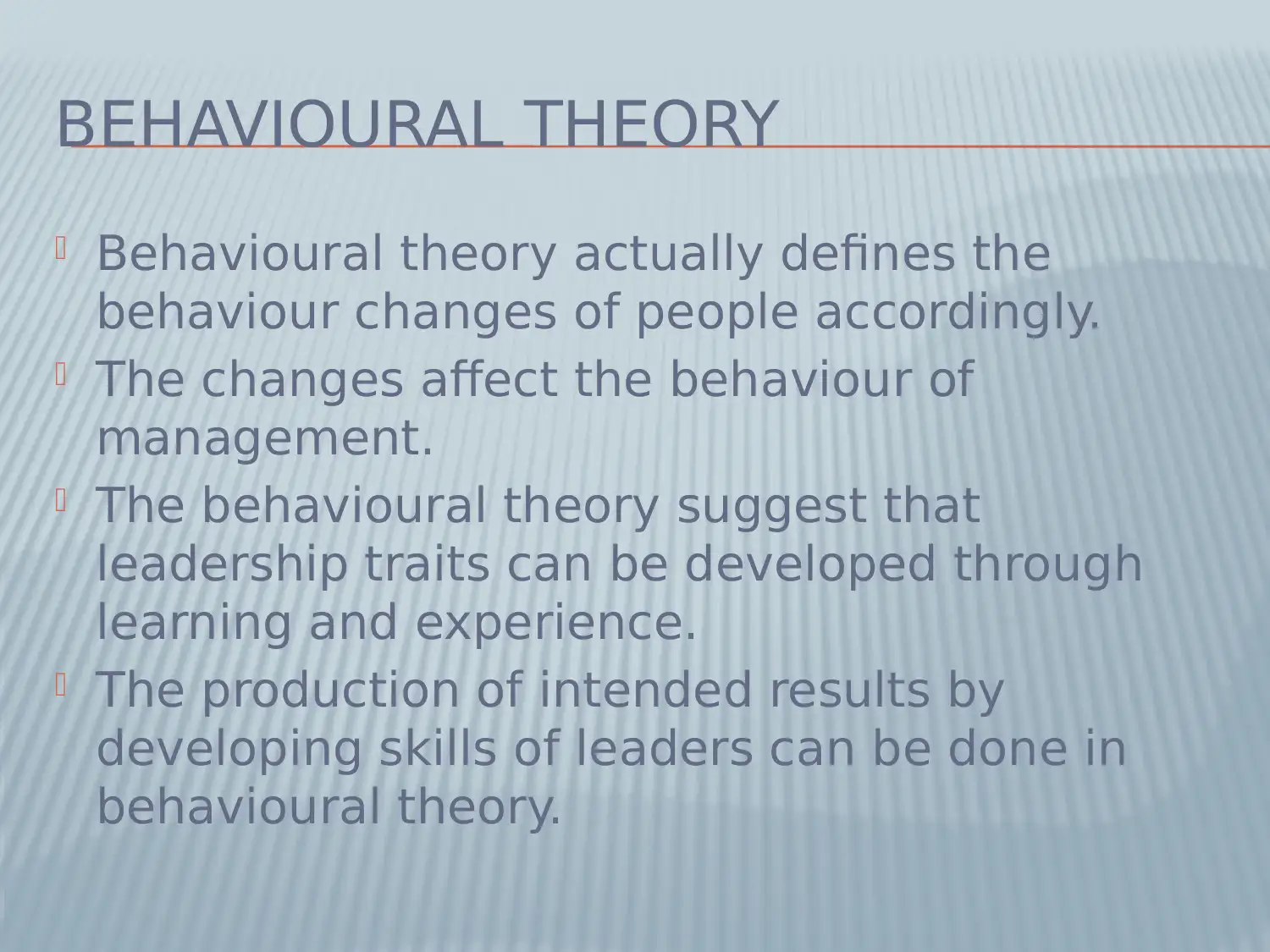
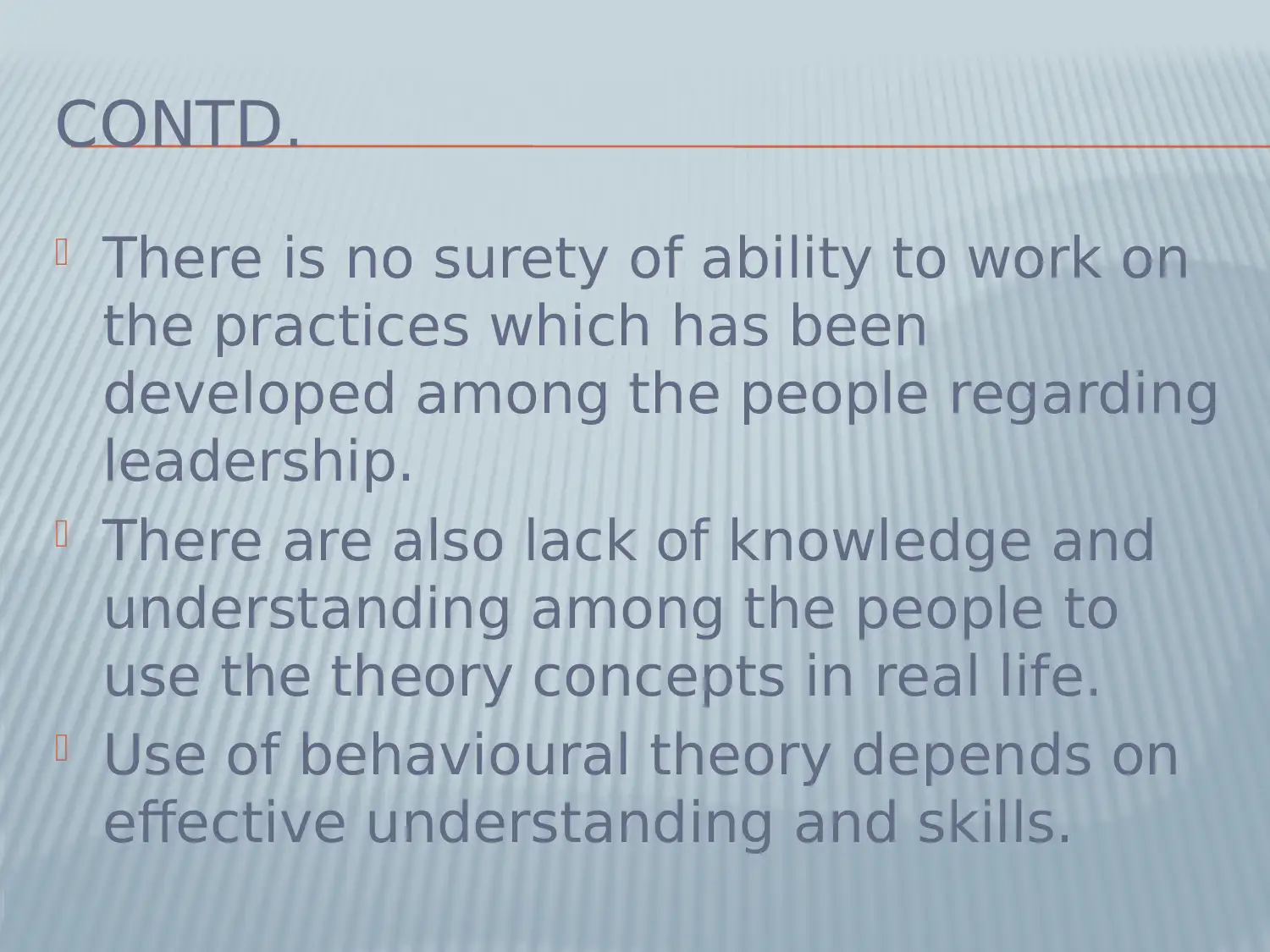
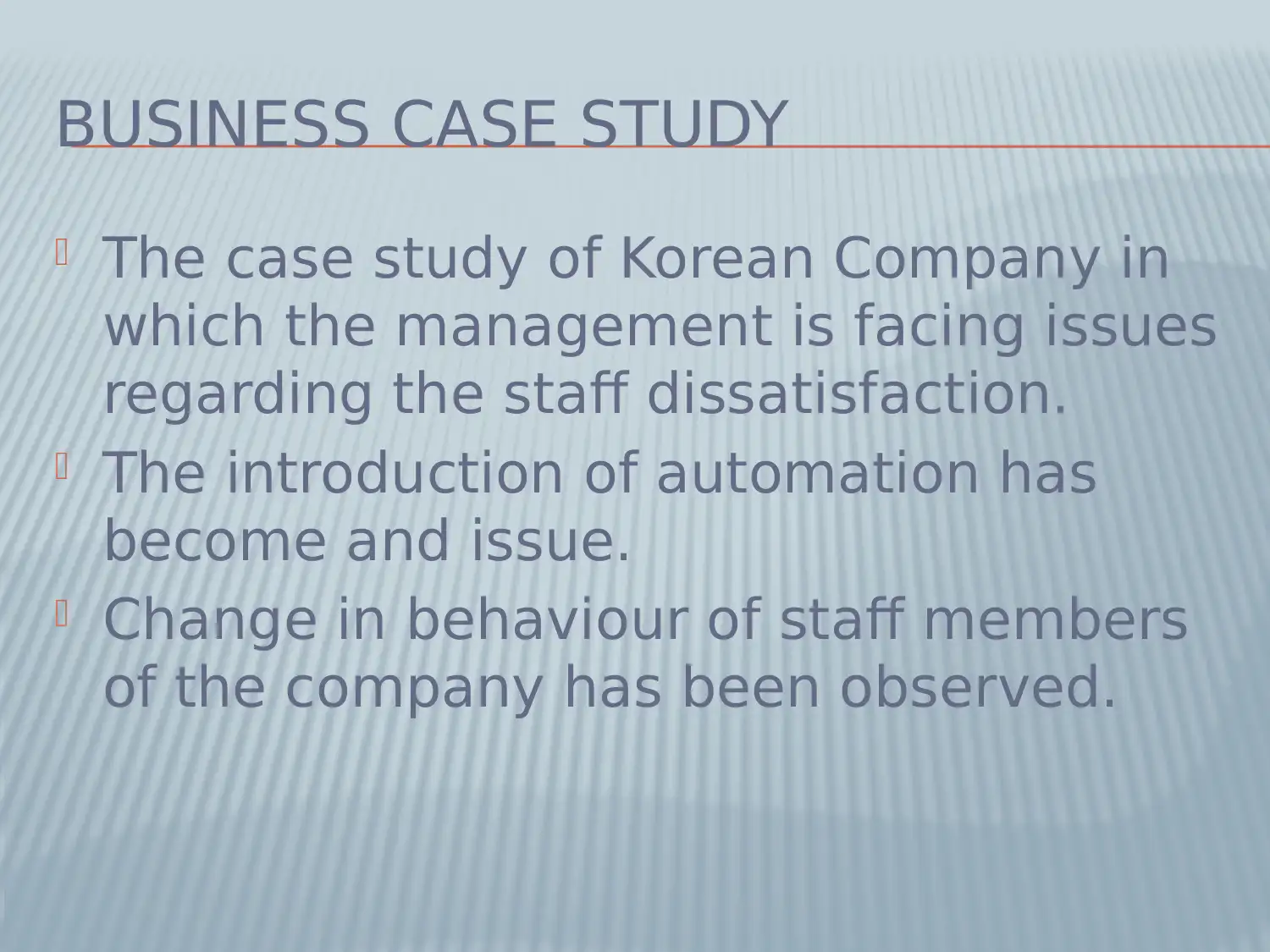
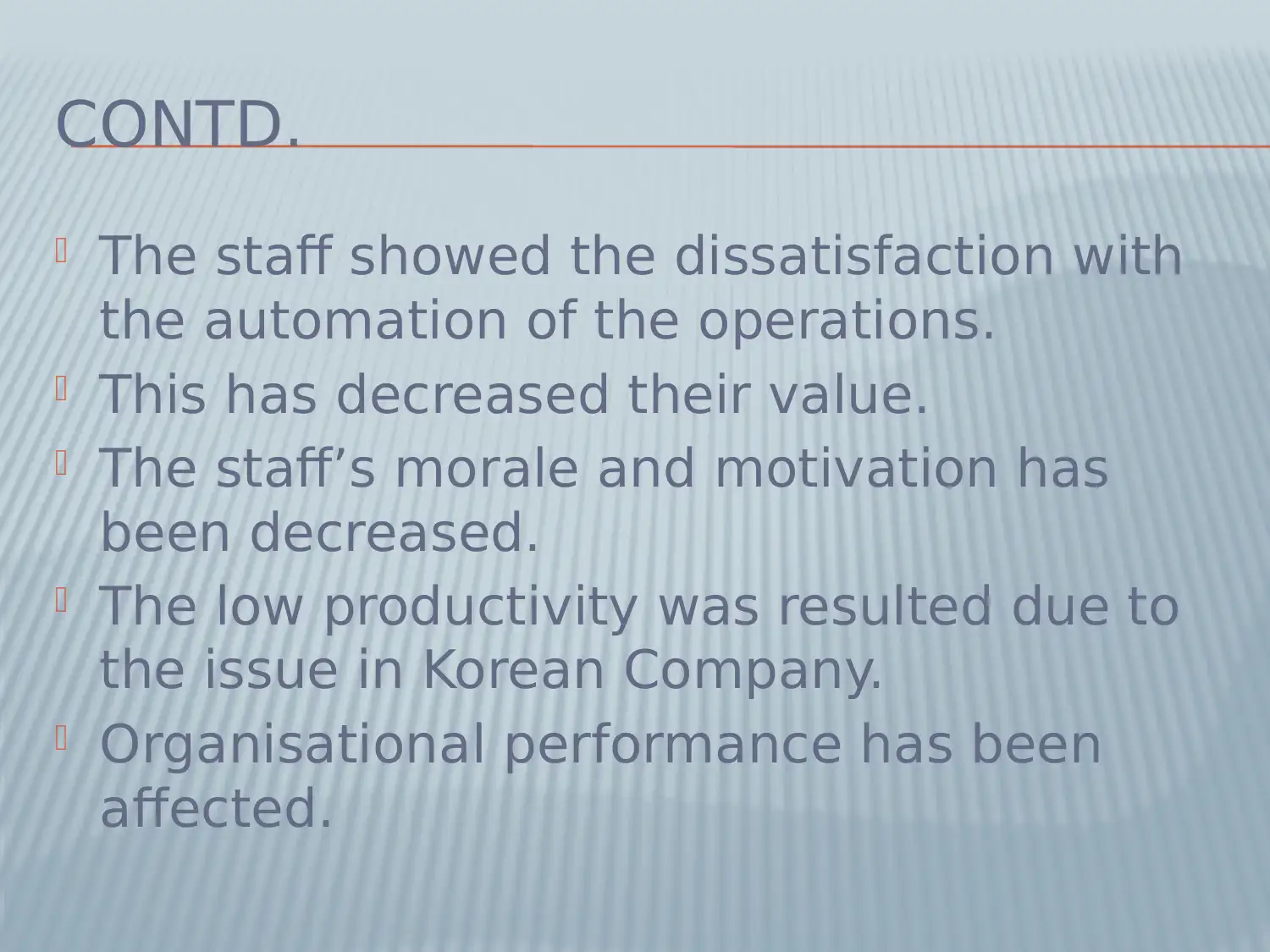
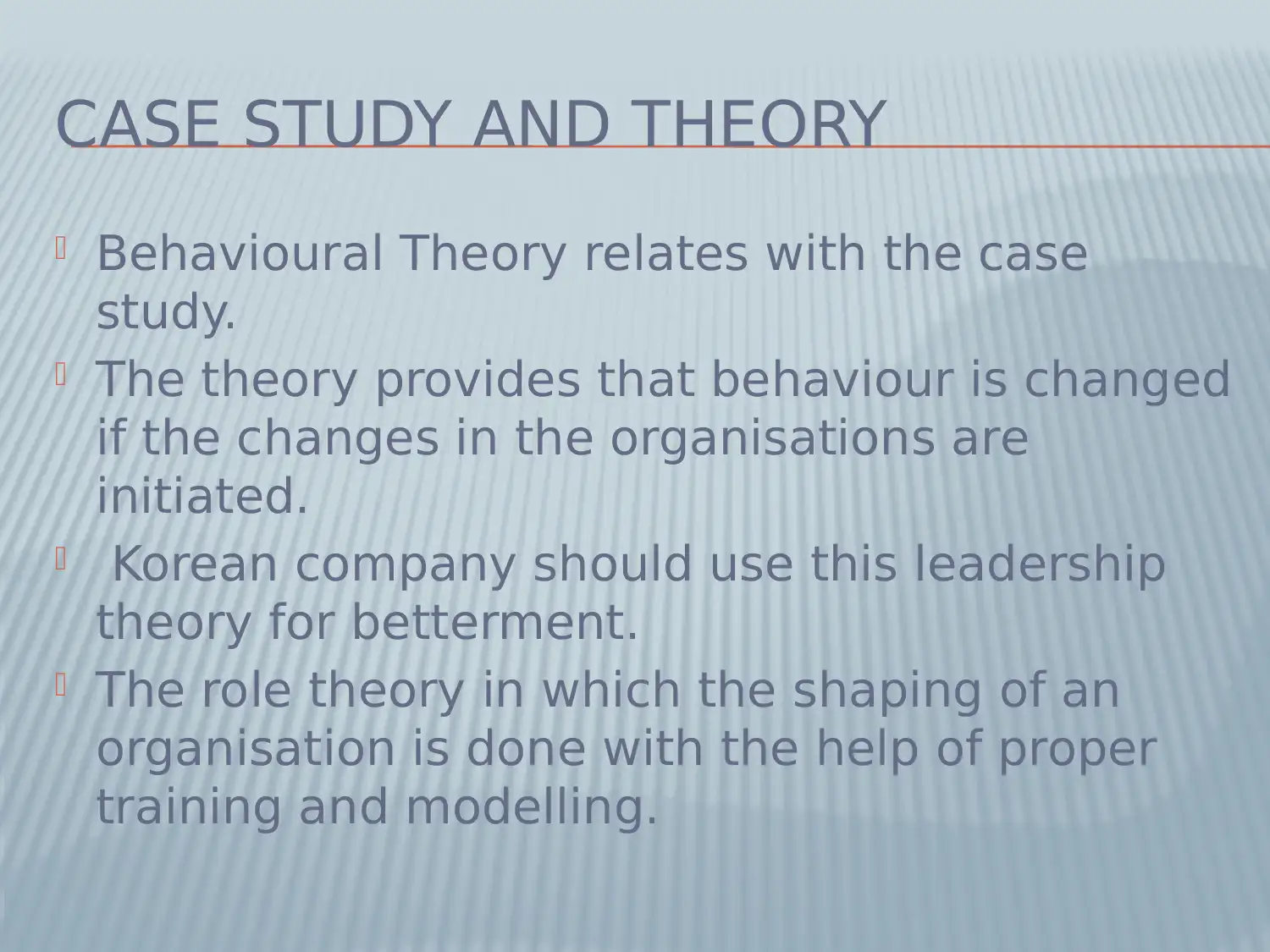

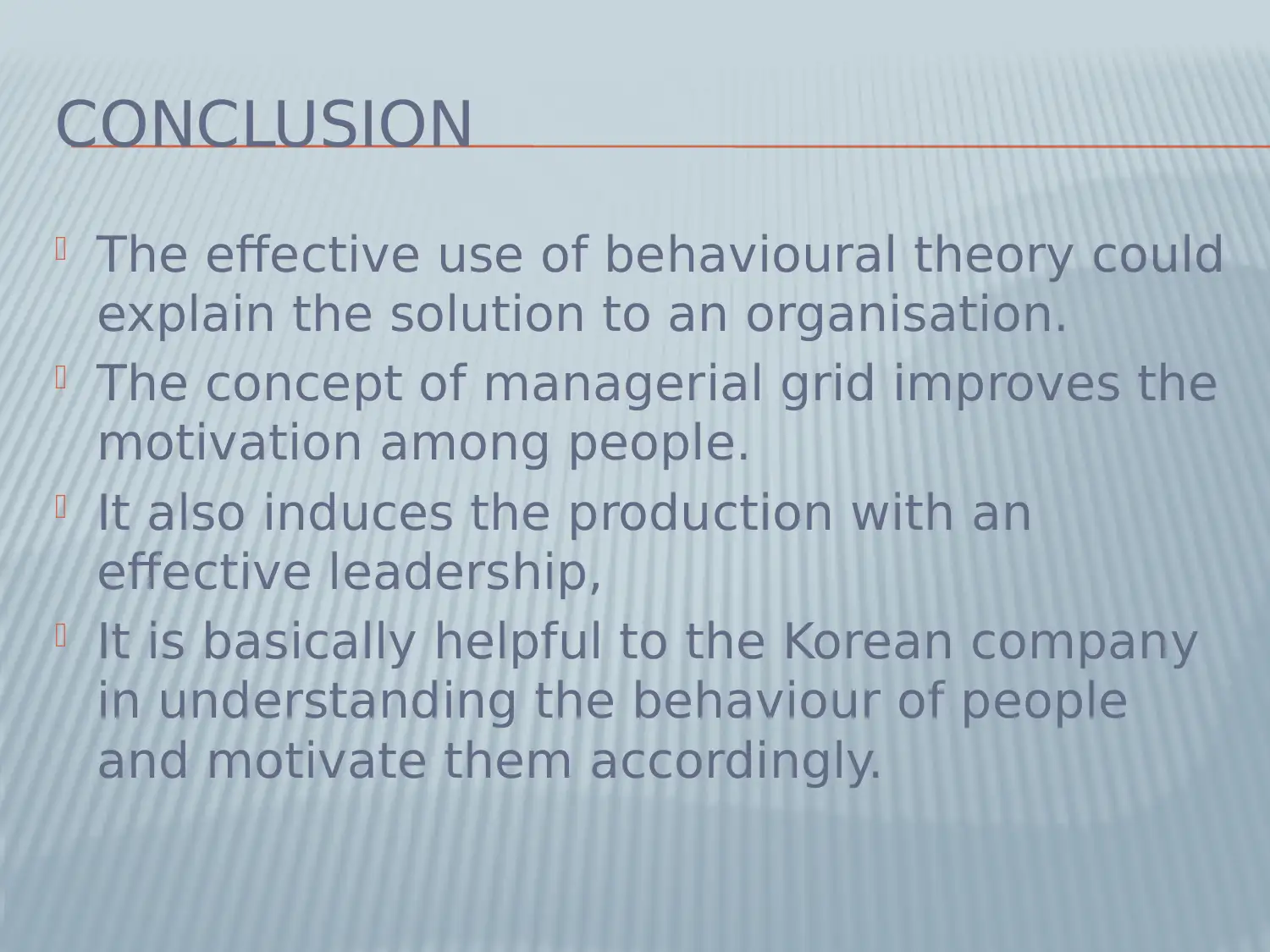
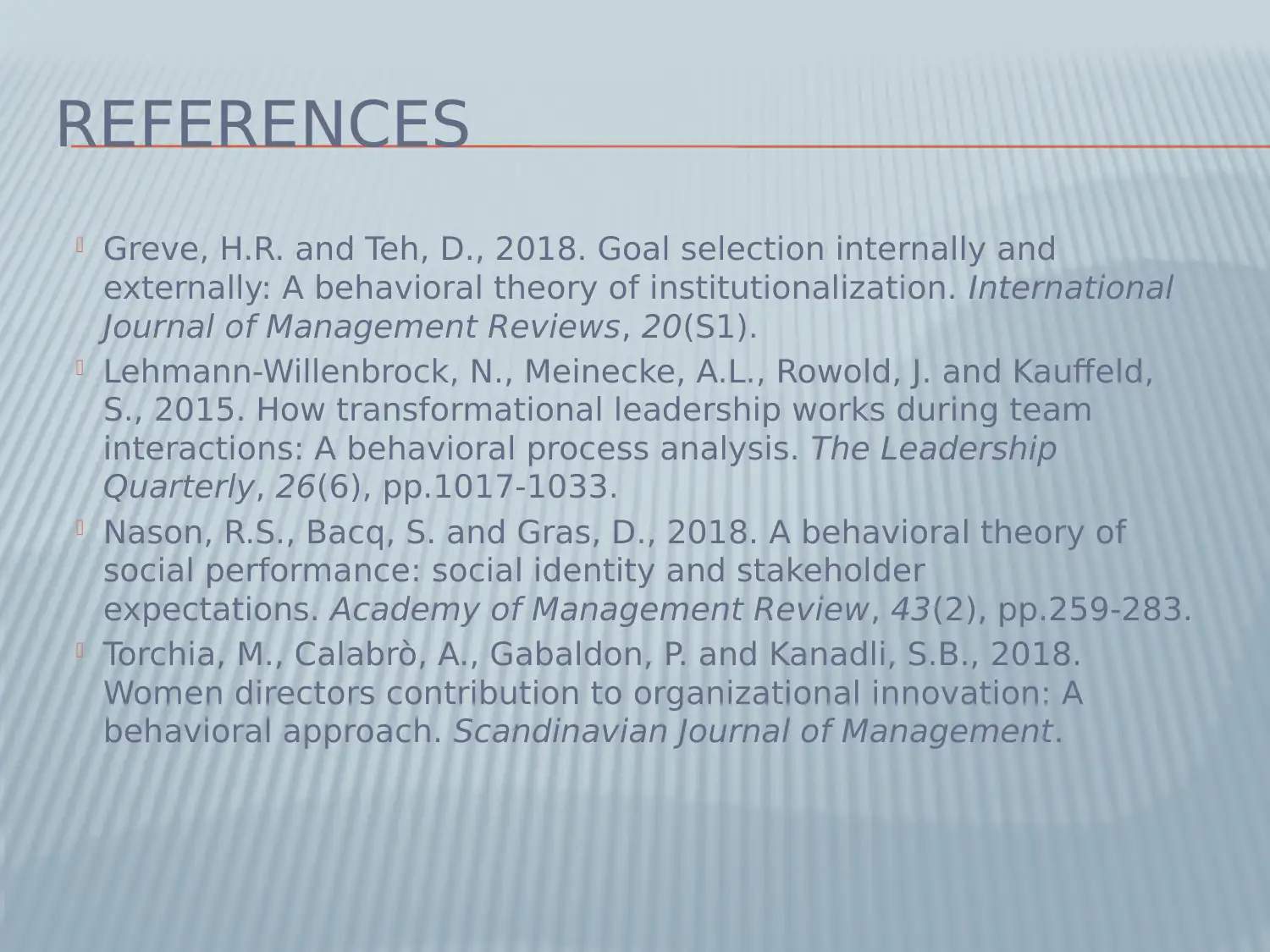





![[object Object]](/_next/static/media/star-bottom.7253800d.svg)